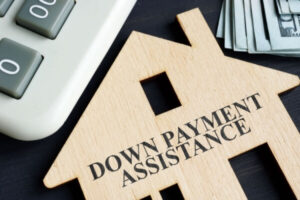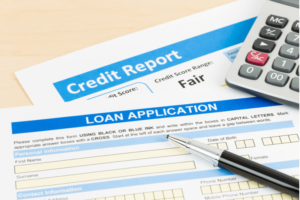Buying a home is one of the best ways to build wealth, but skyrocketing home prices and high mortgage rates are preventing many Americans from taking this step toward financial freedom.
As the housing crisis worsens, the call to revive the First-Time Homebuyer’s Tax Credit, a Great Recession-era boost for homebuyers, gets louder.
The most recent proposal would give low- and moderate-income Americans a financial break when they buy their first home. As proposed, first-time homebuyers would use it to reduce what they owe in taxes by $15,000. But the bill calls for the credit to be adjusted upward for inflation, so, once passed, the amount of the credit would be higher.
The original First-Time Homebuyer Tax Credit, in 2008, was enacted during the housing crisis that led to the Great Recession. Nearly 2.3 million Americans took advantage of the program between 2008 and 2010. President Joe Biden made reviving the tax credit part of his 2020 campaign. The cause was taken up by Congress in 2021 as part of a larger housing bill. It didn’t get out of committee in that session but was revived in 2023.
Sometimes called the Biden First-Time Homebuyer’s Tax Credit, the 2023 proposal is in the hands of the U.S. Senate. The First-Time Homebuyer Tax Credit must be approved by both houses of Congress and signed by the president to become law.
What Is a First-Time Homebuyer Tax Credit?
A new homeowner tax credit can pack a powerful financial punch for a consumer. A credit reduces the amount of taxes you pay the federal government or increases your tax refund.
This is much different than a deduction, which reduces your taxable income, and in turn decreases what you pay in taxes.
The tax credit is aimed at giving a financial incentive to people who want to buy a home but can’t afford it. It also is a boost to the housing economy.
The 2023 First-Time Homebuyer’s Tax Credit
The 2023 plan is part of the DASH (Decent, Affordable, Safe Housing for All) Act, which is officially U.S. Senate Bill 680.
Under the proposal, First-time home buyers would get a tax credit of 20% of a home’s purchase price, with a maximum of $15,000. Since the bill calls for the amount to be adjusted for inflation, that could be more than $17,000 in 2024, and higher than that in subsequent years. The credit is for the tax year that the buyer takes occupancy of the home. If the credit is more than what the homebuyer owes in taxes, they’d get a refund for the balance. Mortgages with low, or no down payment are allowed under the plan.
If someone receives the credit, but sells the home within five years, they must repay the IRS on a pro-rata basis.
Biden’s 2021 First-Time Homebuyer’s Tax Credit
The current First-Time Homebuyer’s Tax Credit is almost the same as one that was proposed in 2021, with a few minor changes. That tax credit is often referred to as “Biden’s First-Time Homebuyer’s Tax Credit,” after President Biden touted it on the campaign trail in 2020. In 2021 it was proposed as House Bill 2863, sponsored by U.S. Rep. Earl Blumenauer, a Democrat from Oregon. When he announced the plan, Blumenauer said it would “incentivize housing stability and generational wealth-building opportunities for low- and middle-income Americans, particularly amongst historically marginalized communities.”
The bill was referred to the House Appropriations Committee, where it gained seven co-sponsors, but languished until the two-year legislative session ended. When the 2023 session began, the bill was reintroduced, though this time it was in the U.S. Senate by Sen. Ron Wyden, also an Oregon Democrat.
2008 Federal First-Time Homebuyer Tax Credit
The original First-Time Homebuyer Tax Credit was introduced by the George W. Bush administration as part of the Housing and Economic Development Act of 2008.
The 2008 version was not a tax credit, but an interest-free loan, $7,500 maximum, which had to be paid back over 15 years. It was available to first-time buyers who closed on homes between April 8, 2008, and Jan. 1, 2009. The next year, the Obama administration changed it from a loan to a tax credit and upped the maximum to $8,000 as part of the American Recovery and Reinvestment Act of 2009.
A credit of up to $6,500 was also available to long-time homeowners who sold their old home and bought a new one. About 2.3 million homebuyers took advantage of the program between 2008 and 2010, when it expired.
What Is the Status of the First-Time Homebuyer Tax Credit?
Homebuyers looking to take advantage of the First-Time Homebuyer Tax Credit will have to wait until it becomes available. If it does.
The DASH Act, which includes the credit, was referred to the Senate Committee on Finance in March 2023. The committee has yet to act on the bill, which is a lengthy package, and the tax credit is just a small part.
The bill must be approved by both houses of Congress and signed by the president before it would become law. Once it did, it would likely not take effect until the following year and would be available when homebuyers filed taxes for that tax year.
So, for example, if the bill were passed in 2024, it would likely take effect in 2025 and be available when homebuyers file their 2025 taxes in April 2026.
In October 2023, Biden announced the Neighborhood Homes Tax Credit, which the White House says will provide $10 billion down payment assistance for first-time homebuyers whose parents do not own a home. The proposal also includes $100 million in down payment assistance to expand opportunities for first-generation and/or low-income first-time homebuyers.
Benefits of Biden’s First-Time Homebuyer Tax Credit Proposal
The biggest benefit of the First-Time Homebuyer Tax Credit Proposal is that it puts money back into first time buyers’ pocket after making what may be the biggest purchases of their life.
The tax credit is also inflation-adjusted, so the amount available will rise in subsequent years, allowing it to keep its value as the costs of owning a home rise.
Buying a home is one of the best ways for low and moderate-income Americans to build wealth, not only for themselves, but for the generations of their family to come.
The tax credit also would indirectly benefit all consumers. It would incentivize construction of new homes, which would make all homes more affordable. The economy as a whole also benefits when people who haven’t been able to make big purchases, like a home, are able to do so.
» Learn More: First-Time Home Buyer Benefits
Who Would be Eligible for Biden’s First-Time Homebuyer Tax Credit?
To be eligible for the First-Time Homebuyer Tax Credit:
- The buyer must never have owned a home. This is different from most “first-time homebuyer” programs, which require the person hasn’t owned a home in at least 36 months.
- The buyer must be at least 18 years of age.
- The buyer can’t be claimed as a dependent by another person for tax purposes.
- The buyer must be a U.S. citizen or a permanent resident alien.
- The home must be the buyer’s main residence within 60 days of closing.
- The buyer and seller cannot be related by marriage or family.
- The price of the property can’t exceed local conforming mortgage loan limits by more than 10%.
- The buyer must meet income limits of $100,000 modified adjusted gross income for those filing taxes as a single person; $150,00 for filing as single with dependents; $200,000 for spouses filing jointly. Spouses who file taxes separately are not eligible, and buyers with a higher modified adjusted gross income up to $50,000 above the limits get a reduced credit.
- The credit can be used for any home that is zoned as residential, including mobile homes, manufactured homes, new construction, and multi-unit buildings, as long as one of the units is the buyer’s primary residence.
Current Programs for First-Time Homebuyers
If you are anxious to buy a home, but don’t want to wait for Congress to pass the First-Time Homebuyer Tax Credit or other proposed help for homeowners, there are already many federal programs that can help low and moderate-income buyers afford a home.
Most programs are available through your state’s housing authority or agency, which administer U.S. Department of Housing and Urban Development programs. HUD has an online directory of all local public housing agencies.
Some of the biggest resources for first-time homeowners are:
- Government backed loans: FHA and VA loans are insured by the government, so that buyers can buy with lower downpayments and reduced closing costs. FHA borrowers qualify by income; VA loans are for veterans and their families.
- Housing Choice Voucher homeownership program: Available to low-income households that are already part of the HCV program. It provides monthly assistance to help meet homeownership expenses.
- Indian Home Loan Guarantee Program: The program, also known as Section 184, is available to American Indian and Alaska Native families, Alaska villages, tribes, or tribally designated housing entities. It provides a low down payment and flexible underwriting for new construction, rehabilitation, buying a home or refinancing. The property does not have to be on tribal land for the borrower to be eligible.
- First-time homebuyer housing counseling and resources: HUD agencies offer a variety of resources and financial counseling for people who want to buy a home but aren’t sure if they can afford it or what steps to take. Nonprofit credit counseling agencies also offer free counseling to people who are seeking help with budgeting and debt relief resources. Counseling can be an important first step toward buying a home.
HUD-Approved Online Homebuyer Education Course
HomeTrek is an easy-to-use HUD-approved online homebuyer education course. Our course will help you learn budgeting, saving, how to improve your credit, understand home much home you can afford.
Down Payment Assistance Programs in California
Down Payment Assistance Programs in Pennsylvania
Down Payment Assistance Programs in New York
First-Time Home Buyer Benefits
What Is the Minimum Down Payment for First-Time Home Buyers?
First-Time Home Buyer Guide
First-Time Homebuyer Requirements
Down Payment Assistance Programs in Texas
Credit Scores and the First-Time Homebuyer
First-Time Home Buyers: Programs & Qualifications
Sources:
- N.A. (2023, October 16) White House Announces New Actions on Homeownership. Retrieved from https://www.whitehouse.gov/briefing-room/statements-releases/2023/10/16/white-house-announces-new-actions-on-homeownership/
- N.A. (ND) S.-680 DASH Act. Retrieved from https://www.congress.gov/bill/118th-congress/senate-bill/680/text
- Hoyt, A. (2014, December 1) How the First-Time Homebuyer Tax Credit Worked. Retrieved from https://home.howstuffworks.com/real-estate/first-time-home-buying/first-time-homebuyer-tax-credit.htm
- N.A. (2021, April 26) Amidst Unprecedented Housing Demand, Blumenauer Introduces Legislation to Support First-Time Homebuyers. Retrieved from https://blumenauer.house.gov/media-center/press-releases/amidst-unprecedented-housing-demand-blumenauer-introduces-legislation-to-support-first-time-homebuyers
- N.A. (ND) Credits and Deductions for Individuals. Retrieved from https://www.irs.gov/credits-deductions-for-individuals
- N.A. (ND) HR 2863 First-Time Homebuyers Act of 2021. Retrieved from https://www.congress.gov/bill/117th-congress/house-bill/2863
- N.A. (ND) Government-backed home loans and mortgage assistance. Retrieved from https://www.usa.gov/government-home-loans
- N.A. (ND) HCV Homeownership Program. Retrieved from https://www.hud.gov/program_offices/public_indian_housing/programs/hcv/homeownership
- N.A. (ND) Section 184 Indian Home Loan Guarantee Program. Retrieved from https://www.hud.gov/program_offices/public_indian_housing/ih/homeownership/184
- N.A. (ND) Buying a Home. Retrieved from https://www.hud.gov/program_offices/housing/sfh/hcc/first_time_homebuyers_1NEW










